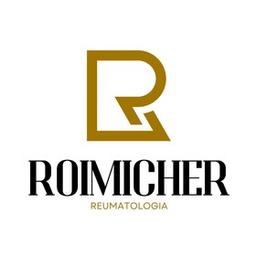Additional Filters
Rheumatologists
Found 6 rheumatologists
Dr. Lívia Madeira
Rheumatologist in Rio de Janeiro
Rheumatologist
Video consultation
Video consultation
Dra. Karla David
Rheumatologist in São Paulo
Rheumatologist
Dr. Roberto Ezequiel Heymann
Rheumatologist on the clinical staff at Albert Einstein Hospital
Rheumatologist
Dra. Alana Santos Pinon
Rheumatologist in São Paulo
Rheumatologist
Video consultation
Video consultation
Prof. Luis Roimicher
Rheumatologist Specialist Internal Medicine in Rio de Janeiro
Rheumatologist
Visitors who were interested in rheumatologists also searched for:
Rheumatologists by cities
Visitors who were interested in rheumatologists also searched for:
General information on medical treatment
The importance of rheumatology in public health
Rheumatologists play a crucial role in the diagnosis and treatment of musculoskeletal and autoimmune diseases. They treat millions of people affected by potentially disabling conditions, and early diagnosis and appropriate treatment in pathologies such as rheumatoid arthritis, systemic lupus erythematosus, and ankylosing spondylitis represent significant savings in rehabilitation costs and productivity loss for the healthcare system.
Assessment methodology in rheumatology
The specialized rheumatological medical evaluation involves detailed analysis of joint and systemic symptoms, as well as thorough investigation of family and personal medical history. The structured physical examination specifically assesses joints, muscles, and tendons, complemented by laboratory tests that include inflammatory markers, autoantibody research, and histopathological analyses when indicated. The selection of complementary exams is always based on individualized clinical suspicion.
Imaging technologies in rheumatology
Technological advances in diagnostic imaging have revolutionized contemporary rheumatological practice. Musculoskeletal ultrasonography stands out as a dynamic method for early assessment of synovitis and tendon alterations. Articular magnetic resonance imaging provides three-dimensional visualization of internal structures, being indispensable in the diagnosis of complex conditions such as vasculitis and spondyloarthritis. Advanced techniques such as power Doppler and special sequences for detecting bone edema have significantly expanded diagnostic accuracy.
When to see a rheumatologist
What is the exact moment to seek a rheumatologist? Many people wonder about this and we will discuss it below:
Persistent joint conditions
Patients with continuous joint pain for more than six weeks, especially when associated with prolonged morning stiffness and visible joint swelling, need specialized evaluation.
Associated systemic manifestations
Unexplained fever, chronic fatigue, unintentional weight loss, or specific skin changes may represent extra-articular manifestations of rheumatic diseases.
Suggestive laboratory alterations
Persistent elevation of inflammatory markers (ESR and CRP), positivity for autoantibodies (ANA, rheumatoid factor), or hematological alterations without apparent cause justify rheumatological investigation.
Therapeutic approaches in rheumatology
The modern treatment of rheumatic diseases is based on personalized strategies that consider individual patient characteristics. Pharmacological therapy ranges from conventional anti-inflammatory drugs to latest-generation immunobiological medications. Specialized physical rehabilitation protocols are developed to preserve joint function. Image-guided interventional procedures complement the therapeutic arsenal, while multidisciplinary follow-up integrates different specialties when necessary.
Advances in the treatment of rheumatic diseases
Contemporary rheumatology is experiencing an era of therapeutic transformation marked by the development of medications with increasingly specific mechanisms of action. Inhibitors of intracellular pathways such as JAK inhibitors represent an important advance in the control of rheumatoid arthritis. Monoclonal antibodies against specific interleukins have revolutionized the treatment of spondyloarthritis. Research with cell therapy and regenerative medicine opens promising perspectives for degenerative conditions such as advanced osteoarthritis.
Myths and truths about rheumatic diseases
Misconceptions about joint pain
The popular belief that significant joint discomfort is an inevitable consequence of aging lacks scientific foundation. Persistent painful conditions, especially when accompanied by prolonged morning stiffness and joint swelling, frequently represent treatable conditions that deserve specialized evaluation.
Prognosis of rheumatic diseases
The fatalistic view of the evolution of inflammatory arthritis does not correspond to current clinical reality. With early diagnosis and appropriate treatment, most patients achieve satisfactory control of the disease, maintaining quality of life and functional independence.
How to prepare for a rheumatological consultation
Previous clinical documentation
Organizing previous test results, especially inflammatory markers, autoantibody research, and imaging exams, facilitates the initial evaluation. Medical reports from previously consulted specialists provide valuable information about the chronology of the condition.
Detailed symptom record
Elaborating a chronological description of symptoms, including pain characteristics, improvement/worsening factors, and diurnal variation, allows accurate reconstruction of the clinical history. Photographs of transient skin lesions help in documenting extra-articular manifestations.
The future of rheumatology
The incorporation of digital technologies and artificial intelligence promises to transform rheumatological practice. Automated image analysis systems increase diagnostic precision, while telemonitoring platforms allow continuous monitoring of clinical parameters. Personalized medicine based on genomic profiles and specific biomarkers represents the frontier of rheumatological therapeutics.
Choosing a specialist in rheumatology
The selection of a qualified professional should consider solid academic training, with specific medical residency in rheumatology and constant updating. Clinical experience in managing complex conditions and access to modern diagnostic technologies are determining factors for satisfactory therapeutic results. The comprehensive approach that considers psychosocial aspects and quality of life differentiates the most capable specialists.
Frequently Asked Questions
Disclaimer
This website provides general information and insights from third parties. It is not a replacement for professional medical advice. Please consult a healthcare professional before making any decisions based on the information on this website. Be aware that you bear full and exclusive responsibility for the use of this website and its contents.
About
Contact UsAbout AvaliaMedPrivacy PolicyTerms of UseAccessibility StatementList your Practice on AvaliaMedPhoto GalleryMedical ArticlesLog inSpecialities
Aesthetic medicineOrthopedic SurgeonsGynecologistsPlastic SurgeonsDermatologistsEye DoctorsDentistsUrologistsClínicasHospitals
Sirio-Libanes HospitalAlbert Einstein Israelite HospitalHospital of the ClinicsSamaritano HospitalAlbert Sabin Israelite HospitalTreatments
Botox injectionDermoscopyColposcopyTummytuckIVFTooth Implantation ProcedureScoliosisPain managementCataract surgeryHypospadias repairTreatments
Cardiac catheterizationGastroscopyHeadachesADHD in AdultsFace sculpterExtractionsOrthopedic consultationStrabismus surgeryPregnancy followupBreast lift




